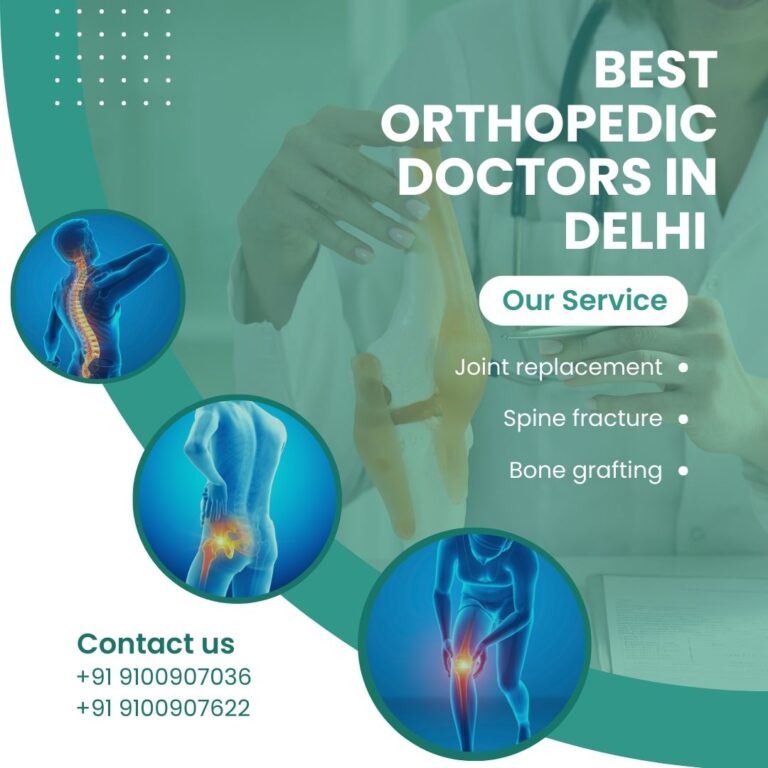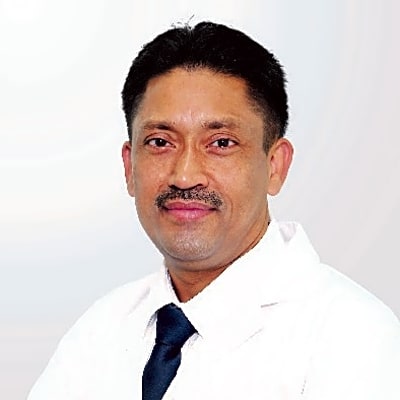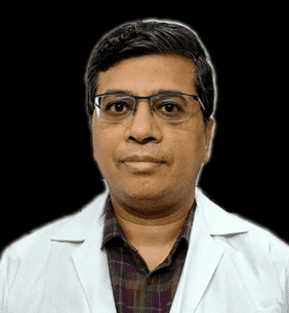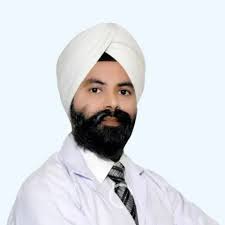Best Orthopaedic Doctors in Delhi
Ever wondered how athletes recover from injuries so quickly, or how elderly people have a good enduring vitality even in their old age? The answer lies in the hands of orthopedic specialists. They are experts in treating problems related to bones, muscles and joints like fractures, arthritis and any sport injuries. They give their best in treatment from therapy to surgery just to give their patients the freedom to move better and feel less painful.
Medintu offers such experienced and most trusted Orthopedic specialists in New Delhi at just your fingertips. For any help, call us at +919100907036 or +919100907622 or visit Medintu.in

Fill out form to enquire now
Who is an Orthopedic Specialist?
An Orthopedic Specialist focuses on treating issues related to bones and muscles, i.e., Musculoskeletal problems. They diagnose, treat and prevent the risk of broken bones, joint pains, muscle pains, injuries, neck pain, back pain, fractures, trauma and many more problems. They treat using various methods like medication, therapy, injections or surgery to help their patients recover fast and better. Their main goal is to help the patients move and do better everyday so that they can get back to normal. They also work closely to make custom and personalized treatment plans for patients. Our Top Orthopedic doctors in New Delhi (NCR) at Medintu are vital for keeping the muscles and bones healthy, improving everyone’s lives.
Conditions treated by Our Orthopedic Specialists
Orthopedic specialists are experienced in treating a wide range of musculoskeletal conditions like :
1. Sprains and Strains: These are the injuries caused to ligaments (sprains) or muscles and tendons (strains), most commonly caused by sudden twists or impacts.
2. Fractures: These are basically the broken bones resulting from trauma or overuse of injuries during sports activities.
3. Tendonitis: The inflammation of tendons due to repetitive motion or overuse, such as tennis elbow or jumper’s knee is called as Tendonitis.
4. Meniscus Tears: These are the tears in the cartilage of the knee joint, often occurring during sports that involve twisting or sudden stops.
5. ACL Tears: These are the injuries caused by the anterior cruciate ligament (ACL) in the knee, commonly in sports with sudden changes in direction, like soccer or basketball.
6. Rotator Cuff Injuries: These are the tears or strains in the muscles and tendons around the shoulder joint, often seen in sports involving overhead motions like swimming or tennis.
7. Dislocations: They treat Joint dislocations, such as shoulder dislocations, commonly occurring in contact sports or from traumatic impacts.
8. Stress Fractures: They treat tiny cracks in bones due to repetitive stress, often seen in athletes who engage in high-impact activities like running or jumping.
9. Concussions: These are traumatic brain injuries resulting from blows to the head, common in contact sports like football or rugby.
10. Bursitis: These are Inflammation of the bursae (small, fluid-filled sacs) that cushion joints, often caused by repetitive motions or direct trauma.
Our Top Orthopedists in New Delhi



Dr. Neeraj Gupta
25 years of experience


Dr. Parvinder Singh Arora
18 years of experience
Why choose Medintu for Orthopedic Care?
- Extensive Network of Specialists
Medintu collaborates with top orthopedic surgeons in Delhi who have years of experience and expertise in their respective fields.
- Advanced Diagnostic Facilities
Our platform offers the best imaging technologies, including MRI, CT scans, and X-rays, for accurate diagnosis and treatment planning in Delhi.
- Patient-Centric Approach
Medintu prioritizes patient satisfaction and ensures a seamless healthcare experience from appointment scheduling to follow-up care
- Telemedicine Services
Access orthopedic consultations from the comfort of your home through our telemedicine platform, enabling convenient and timely healthcare delivery.
Why should I consult an Orthopedic Specialist?
If you are facing problems like back pain, neck pain, knee pain that last longer than usual or any pain due to weight gain, pain that worsens during rest, bone fractures due to any accident, swelling or bruising around a joint injury, any signs of infection related to bones, joints, muscles and ligaments, then you are advised to consult a best orthopedic specialist near you to give you right treatment on time. Some of the services provided by an orthopedic doctor are Joint Replacement Surgery, Joint Mobilization, Knee Replacement, Physiotherapy for Sports Injury Rehabilitation and Neuromuscular Disorders etc.
How does aging affect musculoskeletal health in Adults?
Aging is all about different changes in the musculoskeletal system, which can lead to common orthopedic issues in older adults. Here’s how aging affects musculoskeletal health.
- Bone Density: As people age, bone density tends to decrease, leading to conditions like osteoporosis, which increases the risk of fractures.
- Joint Health: Cartilage wears down over time, leading to conditions such as osteoarthritis, characterized by joint pain, stiffness, and decreased range of motion.
- Muscle Mass and Strength: Muscle mass decreases with age, resulting in loss of strength and stability, which can increase the risk of falls and fractures.
What are the common Orthopedic problems in Adults?
- Osteoarthritis: This degenerative joint disease is one of the most common orthopedic conditions in older adults, affecting joints such as knees, hips, and hands.
- Osteoporosis: Aging leads to decreased bone density, making bones fragile and prone to fractures, especially in the spine, hips, and wrists.
- Fractures: Older adults are at higher risk of fractures due to decreased bone density, weakened muscles, and balance issues.
- Falls: Falls are a significant concern for older adults and can result in fractures, head injuries, and loss of mobility.
Tips for Maintaining a healthy body to prevent Orthopedic problems
By following these methods, older adults can soothe the impact of aging on their musculoskeletal health, reduce the risk of orthopedic problems, and maintain mobility and independence for a better quality of life.
- Exercise: Engaging in regular physical activity, including strength training, flexibility exercises, and balance exercises, can help maintain muscle strength, joint flexibility, and overall mobility.
- Balanced Nutrition: A balanced diet rich in calcium, vitamin D, and protein is essential for maintaining bone health and preventing osteoporosis.
- Fall Prevention: Creating a safe home environment by removing tripping hazards, installing grab bars and handrails, and using assistive devices can help prevent falls.
- Regular Check–ups: Regular visits to healthcare providers allow for early detection and management of orthopedic issues, reducing the risk of complications.
- Assistive Devices: Using assistive devices such as canes, walkers, and orthopedic braces can provide support and stability, enabling older adults to maintain independence.
Orthopaedic Hospitals in Delhi
FAQs
What does an orthopedic specialist treat?
Orthopedic specialists treat conditions related to the musculoskeletal system, including bones, joints, muscles, ligaments, and tendons. This can involve anything from fractures and sprains to arthritis and sports injuries.
When should I see an orthopedic specialist?
You should consider seeing an orthopedic specialist if you experience persistent joint or muscle pain, have difficulty performing daily activities due to musculoskeletal issues, have suffered a sports injury, or have been diagnosed with a bone or joint condition.
How do I find the right orthopedic specialist for me?
You can start by asking your primary care physician for a referral. You may also consider researching orthopedic specialists in your area, checking their credentials, reading patient reviews, and considering their experience in treating your specific condition.
What can I expect during my first visit to an orthopedic specialist?
During your first visit, the orthopedic specialist will likely review your medical history, perform a physical examination, and may order diagnostic tests such as X-rays, MRI, or CT scans to evaluate your condition. They will then discuss treatment options with you.
What are common treatments provided by orthopedic specialists?
Orthopedic specialists may recommend non-surgical treatments such as medication, physical therapy, injections, or orthotic devices. If surgery is necessary, they may perform procedures such as joint replacement, arthroscopy, or fracture repair.
How long does it take to recover from orthopedic surgery?
Recovery time can vary depending on the type of surgery and individual factors such as age and overall health. Your orthopedic specialist will provide you with specific instructions for post-operative care and rehabilitation to help optimize your recovery.
Are there any risks associated with orthopedic surgery?
Like any surgical procedure, orthopedic surgery carries some risks, including infection, blood clots, and complications related to anesthesia. Your orthopedic specialist will discuss these risks with you and take steps to minimize them.
Can orthopedic specialists help with sports injuries?
Yes, orthopedic specialists often specialize in treating sports-related injuries such as ligament tears, muscle strains, and stress fractures. They can provide comprehensive care to help athletes recover and prevent future injuries.
Do orthopedic specialists treat pediatric patients?
Yes, orthopedic specialists may specialize in pediatric orthopedics and treat children with conditions such as congenital deformities, fractures, and musculoskeletal disorders.
Will I need a referral from my primary care physician to see an orthopedic specialist?
It depends on your insurance plan and healthcare provider. Some insurance plans require a referral from a primary care physician, while others allow patients to schedule appointments with specialists directly. Check with your insurance provider for specific requirements.
